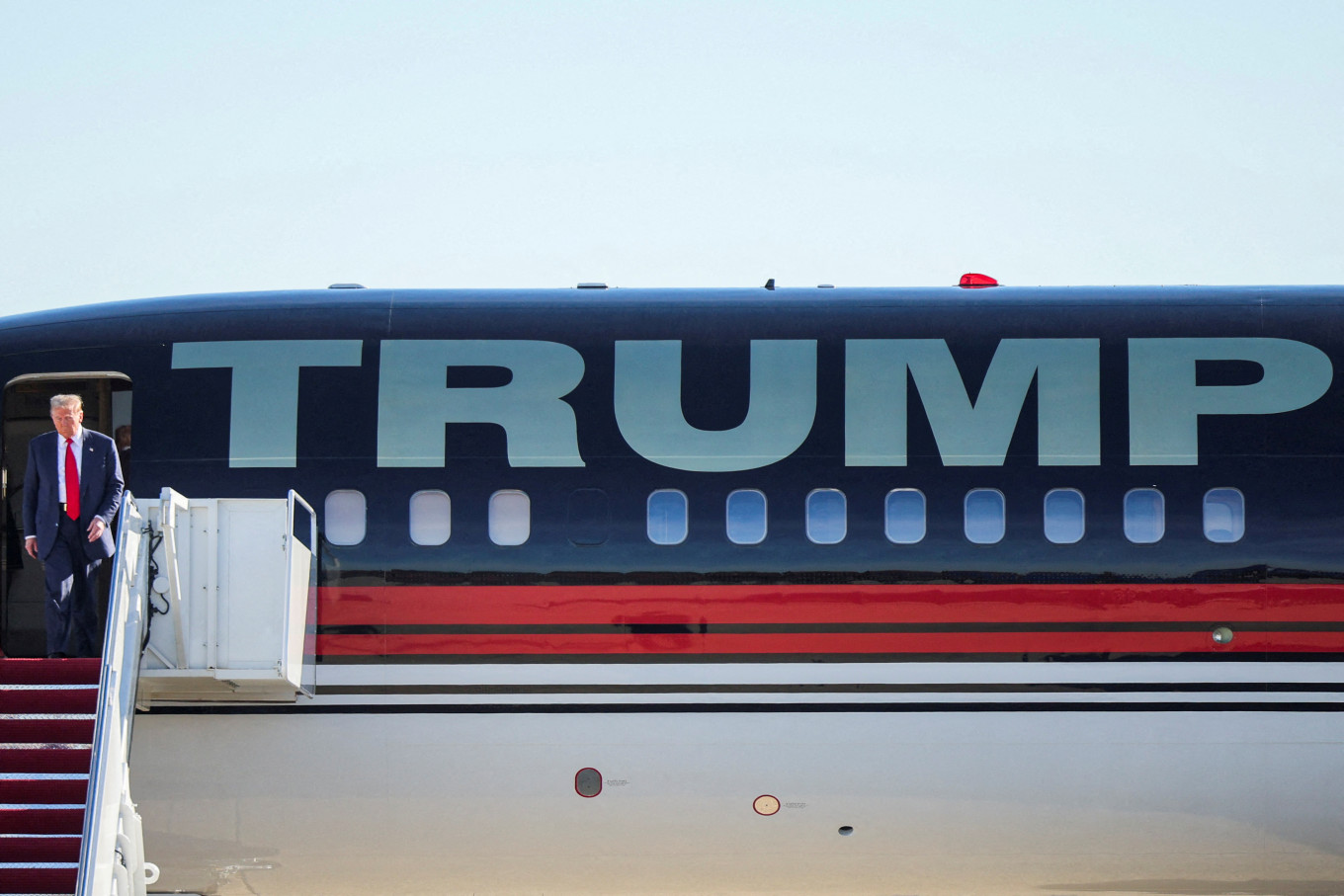Popular Reads
Top Results
Can't find what you're looking for?
View all search resultsPopular Reads
Top Results
Can't find what you're looking for?
View all search resultsHuman progress in the Trump era
The Bulletin of the Atomic Scientists has set its Doomsday Clock at 90 seconds to midnight, indicating that humanity is now closer to annihilation than ever before.
Change text size
Gift Premium Articles
to Anyone
H
aving just been elected president of the United States for a second time, Donald Trump is poised to reshape international relations at a critical moment. Navigating this new and dangerous era of uncertainty requires reflecting on the progress we have made, not least to seek insights into how to overcome the challenges ahead.
The past 80 years have been the most peaceful in history. Major strides have been made in improving gender equality, with the global gender gap now considered to be 68.5 percent closed, according to the World Economic Forum. Literacy has soared: 87 percent of adults worldwide can now read and write (compared to just 36 percent in 1950). Longevity has improved dramatically, with average life expectancy standing at 73 today, up from 66 at the turn of the century. Mass famines, once a common occurrence, have been limited.
Humanity has all the tools it needs to sustain, and accelerate, this progress. In fact, with the knowledge and technologies we already possess, we could solve some of the greatest challenges we face, from poverty and food insecurity to climate change and rapid population growth. This should thus be a time for optimism. Yet the Bulletin of the Atomic Scientists, whose founders include Albert Einstein and J. Robert Oppenheimer, has set its Doomsday Clock at 90 seconds to midnight, indicating that humanity is now closer to annihilation than ever before.
It is not difficult to see why. It is not a coincidence that during the long period of relative global peace and stability, democracy gained ground steadily, broad-based global cooperation became the norm and the world demonstrated an unprecedented shared commitment to human rights. Today, however, we are witnessing the erosion of democracy and international cooperation, as well as the proliferation of wars and conflicts in which innocent civilians are flagrantly targeted, and aggressors act with impunity. These developments reflect systemic failures by our decision-making institutions over many decades.
The way we consume information in the digital age has contributed to the problem. Social media platforms, while offering unprecedented opportunities for connection, education and advocacy, have also challenged our ability to discern fact from fiction and upended the shared understanding of reality we need to facilitate collective problem-solving and preserve democracy. While advanced artificial intelligence holds immense potential benefit for humanity, to harness the promise of these technologies fully, while mitigating the threats, we must focus on ethical governance, digital literacy and global cooperation.
Moreover, the arrival of a new world disorder is playing out against a terrifying backdrop: climate change. With each year proving hotter than the last, the planet is now dangerously close to several tipping points, from Antarctica to the Amazon to the Atlantic circulation.
As we discussed at last month’s Nobel Prize Dialogue in Sydney, Australia, in the face of such existential threats, we have a responsibility, to our fellow humans, to our planet and to future generations, to improve our decision-making radically. Since cooperation has always been humanity’s superpower, the first step must be to rebuild a global culture that sustains it, underpinned by a shared, fact-based understanding of reality and trust in institutions.



















